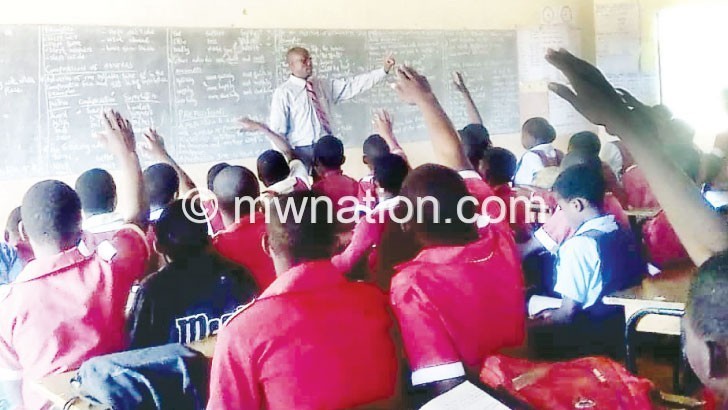Restocking school inspectors
January Chisi has endured the toughest four years as a school inspector.
Until January this year, Chisi was the only education inspector in Salima, with 162 primary schools serving over 60 000 learners.
He also helped the district education manager review school improvement plans and primary education advisers supervise teachers within their zones.
“It was a daunting task to inspect all 162 primary schools alone. Inspection requires a team of at least three people,” he says.
Chisi needs a full day to inspect one school. The work involves assessing school headship, management, learners’ performance, the school’s relationship with the community and the quality of teaching.
All this requires multiple inspectors for optimal results.

“It isn’t possible for one to do an inspection at a school. Every time I planned an inspection, it had to source more education inspectors from other districts, which was costly and difficult due to our limited resources,” he states.
For four years, only 40 primary schools in Salima were inspected, leaving 122 schools not assessed.
This contravenes the National Education Standards which require each school to be inspected once every two years. However, this does not happen primarily due to shortage of accredited inspectors.
Inspection is known to improve learning outcomes, punctuality of both teachers and learners, safety and cleanliness of the learning environment, teaching effectiveness, leadership, and management.
After each visit, the inspectors make reports and draw recommendations used for developing school improvement plans bankrolled by school improvement grants.
Each school in Malawi gets a grant from the district council to implement the school-based plans.
Chisi says the lack of inspections have negatively affected education standards and learning in the district.
“For instance, some teachers in the district relax and do not follow proper teaching guidelines because they know no one is going to inspect their school,” he explains.
However, Chisi’s worries are now over.
In January, the Ministry of Education recruited and trained 201 education inspectors with support from USAid and UK Aid through the Local Government Accountability and Performance (LGAP) project.
These recruits have since joined Chisi and a pool of existing 35 accredited inspectors across the country to promote quality education for all.
They are primary school teachers placed in various schools, but they join inspection teams in their respective districts whenever needed. Their teaching duties are assigned to other teachers during that period.
The unfortunate story of schools going uninspected for a long time also applies to other districts.
For example, since its establishment in 1975, Mbabzi Primary School in Lilongwe got its first inspection on 17 February 2020 following the launch of the National Inspection Exercise by ex-minister of education William Susuwele-Banda.
At the school, the minister sat through a whole lesson in Standard Four to appreciate the teaching standards and uptake of learners. After observing the lesson, Banda said he was impressed with the standard of teaching.
“If this reflects the standard countrywide, then surely, the country is on a positive trajectory,” he said.
Lindiwe Chide, deputy director of inspection and advisory services, hopes that the new education inspector will enhance the quality of teaching and learning in schools that have gone uninspected for many years.
“We expect these Inspectors to start working immediately and we hope the district education managers will facilitate their work as soon as workplans are submitted and approved,” Chide says.
Salima district education manager Christopher Kumikundi pledges to support all inspectors assigned to the district along the shoreline of Lake Malawi.
“Lack of inspection in most schools in Salima has led to laxity of teachers, thereby lowering education standards. The recruitment of additional inspectors will improve quality of education and I will support them,” he states.
Salima now has seven education inspectors. Chisi believes the team is adequate to inspect the district’s schools in line with National Education Standards of 2015.
“I am happy that there is now adequate human resource to conduct school inspection in Salima, which will provide guidance to schools to achieve quality education,” he explains.





